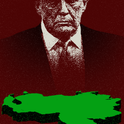A few years ago my London-born wife announced that she was homesick. Unsettled by the Covid pandemic and liberated by my retirement from regular employment, she wanted us to move to the city she had left 25 years earlier.
I had misgivings. I was in my seventies and slowed by Parkinson’s disease. Home was our house on Long Island where our daughters—although both had flown the nest—still cherished Thanksgiving dinners and Christmas-tree decorating. Home was where we had doctors who knew our histories and accepted our insurance. Home was where many of my friends lived. Home was where we drove on the right side of the road.
I’d spent a college semester in London and lived a dozen happy years as a foreign correspondent, but those experiences had largely underscored for me how American I am. The lives of expats seemed like a version of homelessness.
And yet, to the surprise of our friends and family, it took less than 24 hours for me to overcome my doubts and agree that we should retire, not into a conventional pensioners’ routine of bucket lists, cooking classes, cruises and long naps, but into an altogether new life. It was Emma’s turn, we told our friends, and I relished the approval bestowed on me for being such an accommodating spouse.
♦♦♦
Three years later, surprise has given way to something like envy. Home Office figures for 2025 show a record surge in US citizens applying to live here. (And not just here. Social media is awash with advice for would-be refugees from the United States seeking new homes in Portugal, Ireland, Canada, Italy and other destinations.) While Donald Trump is busy demonising and deporting migrants, there is a voluntary exodus propelled in part by fear and revulsion at what America is becoming. Under our tin-pot president, America is more mean-spirited and fractured, fed on conspiracies and cocooned in social media. Dissent is criminalised; masked troops are being deployed on the streets. We’ve overheard American tourists in London claiming to be Canadian, a phenomenon I last encountered while backpacking around Europe and Africa at the time of the Vietnam War.
Leaving America has meant a shift in the balance of our marriage. For Emma, London comes with a posse of close friends she has loyally maintained, along with her UK passport, over the years. I like her friends, and they have accepted me as a kind of full-time plus-one, but at 76 it’s harder to build a social life from scratch. Emma, who is only 64 and more gregarious than I am, has already joined new cohorts—as an avid volunteer tour guide at Kew Gardens, and a “Silver Swans” ballet student at the Royal Academy of Dance.
The older I get, and the more my Parkinson’s advances, the more Emma assumes the role of caregiver. She accompanies me to medical appointments and has made sure that our new home is “future-proofed”, with handrails on the stairs and non-slip bathroom floors. She locates memories that have become harder for me to retrieve. I do resent being infantilised, but when strangers offer me their seat on the underground I usually don’t decline.
When I moved to Moscow in my thirties and Johannesburg in my forties, mortality did not figure in my thinking. Each new assignment felt like a stop on the way to my next adventure. Moving to London in my seventies feels like the final destination.
As a baby boomer, I’ve come to think about death as not just the end of my own life or that of my contemporaries, but as the extinction of our species. It’s a kind of morbid solidarity. We are probably the first generation to face such an expansive menu of ways in which the human race might follow the dinosaurs. I grew up with the singer Tom Lehrer’s satirical warning about nuclear holocaust (“When the air becomes uranious, we will all go simultaneous”). Since then the map of paths to doom has grown to include global pandemic, climate catastrophe, plunging human fertility rates and, the latest, extermination by malign artificial intelligence.
London feels like home to me now, a green, culturally abundant and welcoming city where the National Health Service and public transport are particularly kind to the aging. But there is no real escape from the madness of my native land. We hear echoes of Trumpism in the hateful rhetoric of Reform and on right-wing podcasts. In both countries the liberal resistance is feckless.
And both Britain and America have scandalous dysfunction in their first families. The bestselling story of self-enrichment and sexual misbehaviour, Andrew Lownie’s Entitled: The Rise and Fall of the House of York, is about errant royals, but could just as aptly apply to the shameless Trumps. The president and the unprinced Andrew Mountbatten Windsor are conjoined in the infamy of Jeffrey Epstein. And when Americans by the hundreds of thousands thronged in October to protest Trump’s autocratic aspirations, there was a resonance to their slogan: “No Kings”.











